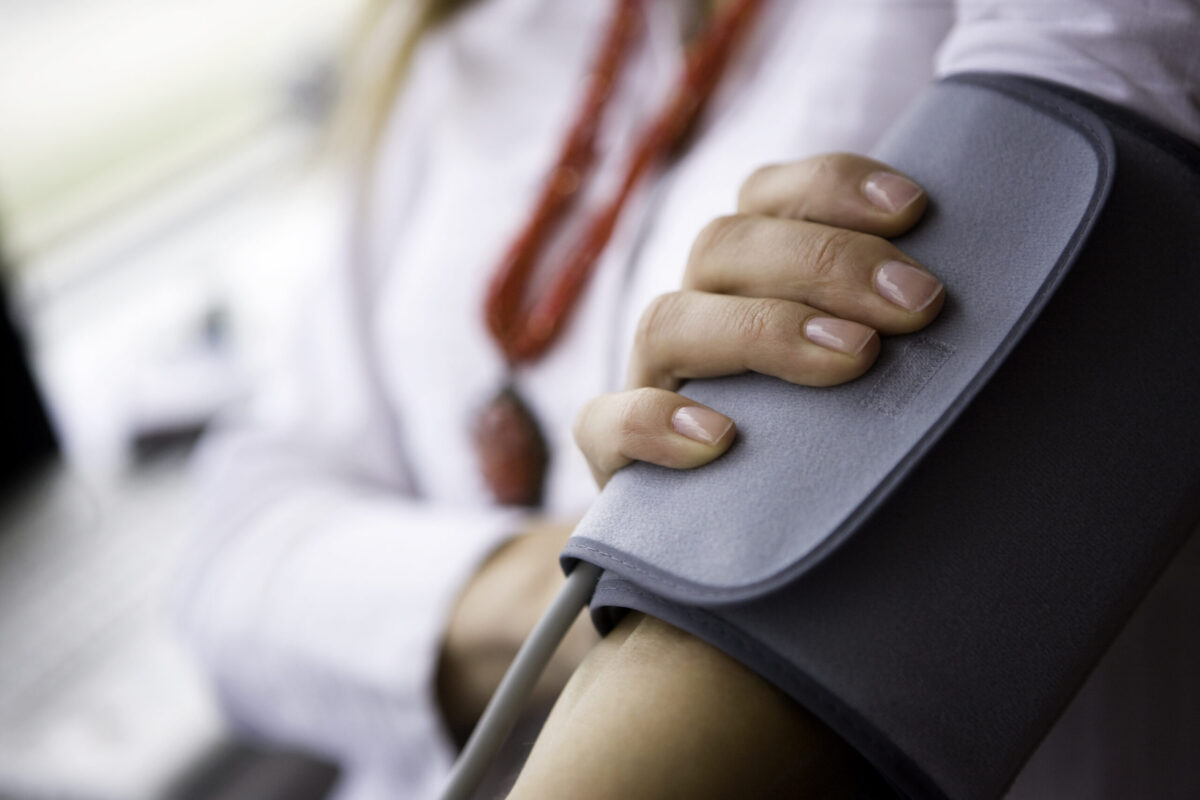Nearly half of adults in the U.S. have high blood pressure, but what exactly is blood pressure? Why does it cause so many health problems? And how do you make sense of the numbers you hear when your blood pressure is taken?
WellTuned spoke with Dr. Ian Bushell, a family medicine physician and medical director for BlueCross BlueShield of Tennessee, to learn more.
In the simplest terms, what is blood pressure?
Dr. Bushell: One vital function of blood is to carry oxygen around your body, which happens through arteries and veins. Think of it as water running through pipes. Your heart is the pump, and it pushes blood around your body. So when you hear the term “blood pressure,” we’re talking about the force of the blood against those pipes as it is pushed by the heart.
What is hypertension, or high blood pressure?
Dr. Bushell: Everyone’s blood pressure changes throughout the day. When it remains high — the force of blood flowing through your vessels is consistently too high — that’s what we call hypertension, or high blood pressure.
What kinds of problems does high blood pressure cause?
Dr. Bushell: With high blood pressure, we’re essentially wearing our bodies out prematurely. Blood pressure increases slowly over time — often 3-5 years — and unless you’re getting annual physicals, you may not know how much wear and tear is happening until you have problems with your organs.
Most people are aware that high blood pressure causes heart problems and strokes. But since blood needs to flow everywhere, high blood pressure damages many parts of the body. Often, people discover hypertension only because they start having trouble with:
- Vision
- Kidneys
- Toes
- Skin
- Sexual performance
Once you connect the dots people realize: “Wow, blood pressure connects to everything.”
What does it mean when you hear your blood pressure is ____ over ____ ?
Dr. Bushell: Blood pressure is made up of 2 numbers:
- The top number is the pressure your heart exerts to push blood out — when it’s squeezing blood out into the body.
- The bottom number is the pressure of the blood when your heart is filling up again — when it’s relaxed.
Normal blood pressure for adults is 120 over 80. Hypertension is diagnosed when it’s repeatedly above 140 over 90. Your provider will tell you what the healthy goal is for you.
How often should you get your blood pressure checked?
Dr. Bushell: Every 2 years if you’re over 18. If you get annual physicals, it will be part of that. Primary care providers and most specialists will also check your blood pressure on every visit.
If you find you do have high blood pressure, your provider may recommend checking it monthly, weekly or daily, which is a simple process now that you can get devices to do it at home. If you need to purchase a machine, get one that measures your blood pressure on your bicep, not your forearm, wrist or finger. And make sure the sleeve is the right size. If you take your machine to your next doctor’s appointment, they can ensure it fits and measures properly.
How does blood pressure affect kids and teens?
Dr. Bushell: 3.5% of kids and teens have high blood pressure, so family physicians and pediatricians should check that annually starting at age 3. With the obesity epidemic, those numbers are only rising, and the effects of high blood pressure are just as damaging to kids’ bodies as to adults.
How do you treat high blood pressure?
Dr. Bushell: There are many lifestyles changes people can make to address high blood pressure including:
- Exercising regularly
- Losing weight and reducing salt intake
- Stopping illicit drug use
- Moderating alcohol use
- Reviewing any supplements you’re taking with your provider
If you do those things and your blood pressure still doesn’t improve, there’s medication. High blood pressure can be genetic, so there shouldn’t be any stigma attached to taking medication.
If your provider does prescribe something, keep taking it as directed, and talk to them if you want to change your medication. It’s very dangerous to go from controlled blood pressure to uncontrolled because it creates a huge release of pressure. Your blood pressure can bounce back even higher than it was pre-medication, and that puts you at risk for heart attack or stroke.
Most importantly, be honest with your doctor. If they’re not receptive or aren’t a good fit, find a new doctor.
If there was one thing you could tell people about blood pressure, what would it be?
Dr. Bushell: High blood pressure can be there even if you live a healthy life. I’ve seen it in athletes and people struggling with obesity alike. If your hope is to live a long life, get your blood pressure checked regularly, and make changes when you need to. You don’t drive your car at full speed all the time; Don’t do that to your body with your blood pressure.
Get more information about specific health terms, topics and conditions to better manage your health on bcbst.com. BlueCross BlueShield of Tennessee members can access wellness-related discounts on fitness products, gym memberships, healthy eating and more through Blue365®. BCBST members can also find tools and resources to help improve health and well-being by logging into BlueAccess and going to the Managing Your Health tab.


